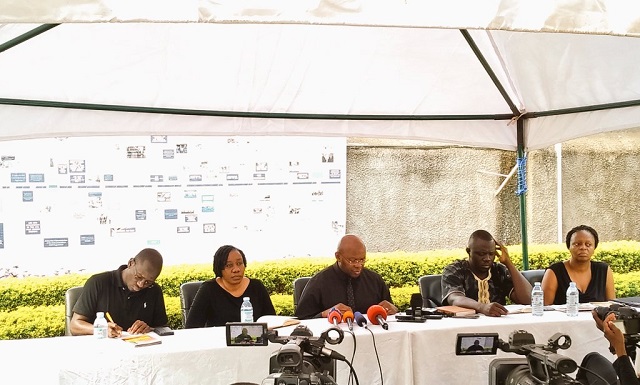
Kampala, Uganda | THE INDEPENDENT | The National Non-Governmental Organizations (NGO) Forum has asked Government to use the existing time to present the electoral reforms as recommended by the Supreme Court. The NGO forum was commenting on the Electoral Reforms tabled by Government before parliament.
On Thursday, Government tabled five electoral reform bills including; the Presidential Elections (Amendment) Bill No.17, 2019, the Parliamentary Elections (Amendment) Bill No.18, 2019, Electoral Commission (Amendment) Bill No. 19, 2019, the Political Parties and Organization (Amendment) Bill No. 20, 2019 and the Local Governments (Amendment) Bill No.21, 2019.
The bills according to the Butambala MP, Muwanga Kivumbi seek to introduce stringent proposals especially curtailing independent candidates and party defections. He also says the bills also propose that members of security forces vote earlier so they can freely safeguard the elections. The bills also reportedly seek to stop political parties from associating with pressure groups among others.
Now, Richard Ssewakiryanga, the Executive Director NGO forum, says the proposals are misguided since they target independent candidates, pressure groups and voting by security forces but leave out the recommendations by the Supreme Court. Some of the recommendations by the Supreme Court include regulation of public servants from meddling in politics, election financing and donations among others. According to Ssewakiryanga, Uganda’s electoral process has been marred with violence, vote rigging and numerous electoral petitions since 2011. He asks government to also include the electoral reforms proposed by other players like civil society organisations through the citizens compact that were generated following countrywide consultations.
He says the electoral reforms tabled by government are not only dangerous to Ugandans but politicians and Government as well.
Patricia Munabi, the Executive Director Forum for Women in Democracy, says the proposed reforms presented by Government are cosmetic and will only impede democracy. She says the major proposals in the citizens compact for free and fair elections such high nomination fees and violence against women haven’t come through.
In 2016, Supreme Court judges led by Chief Justice Bart Katureebe while delivering their judgment in the Amama Mbabazi Versus Museveni and 2 Others Presidential Election Petition, made pronouncements about outstanding electoral reforms that are meant to guarantee free and fair elections.
They included extending the filing and determination period of presidential election petitions to 60 days to enable the concerned parties and court to adequately prepare and present their case, regulation of public officials in elections and punishment of media houses, which refuse to grant equal airtime to all presidential candidates and prohibition of donations during elections among others.
*****
URN
 The Independent Uganda: You get the Truth we Pay the Price
The Independent Uganda: You get the Truth we Pay the Price





